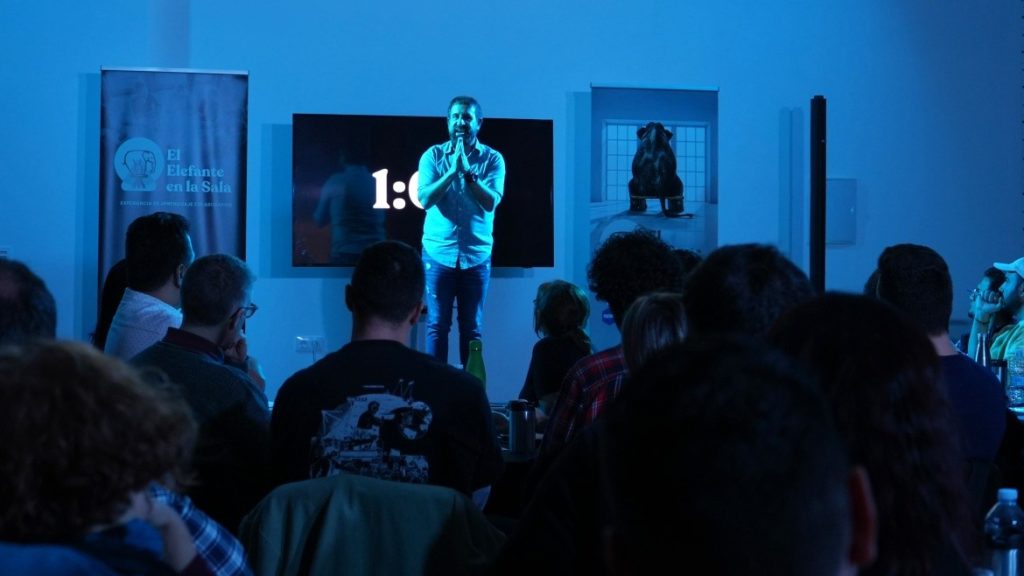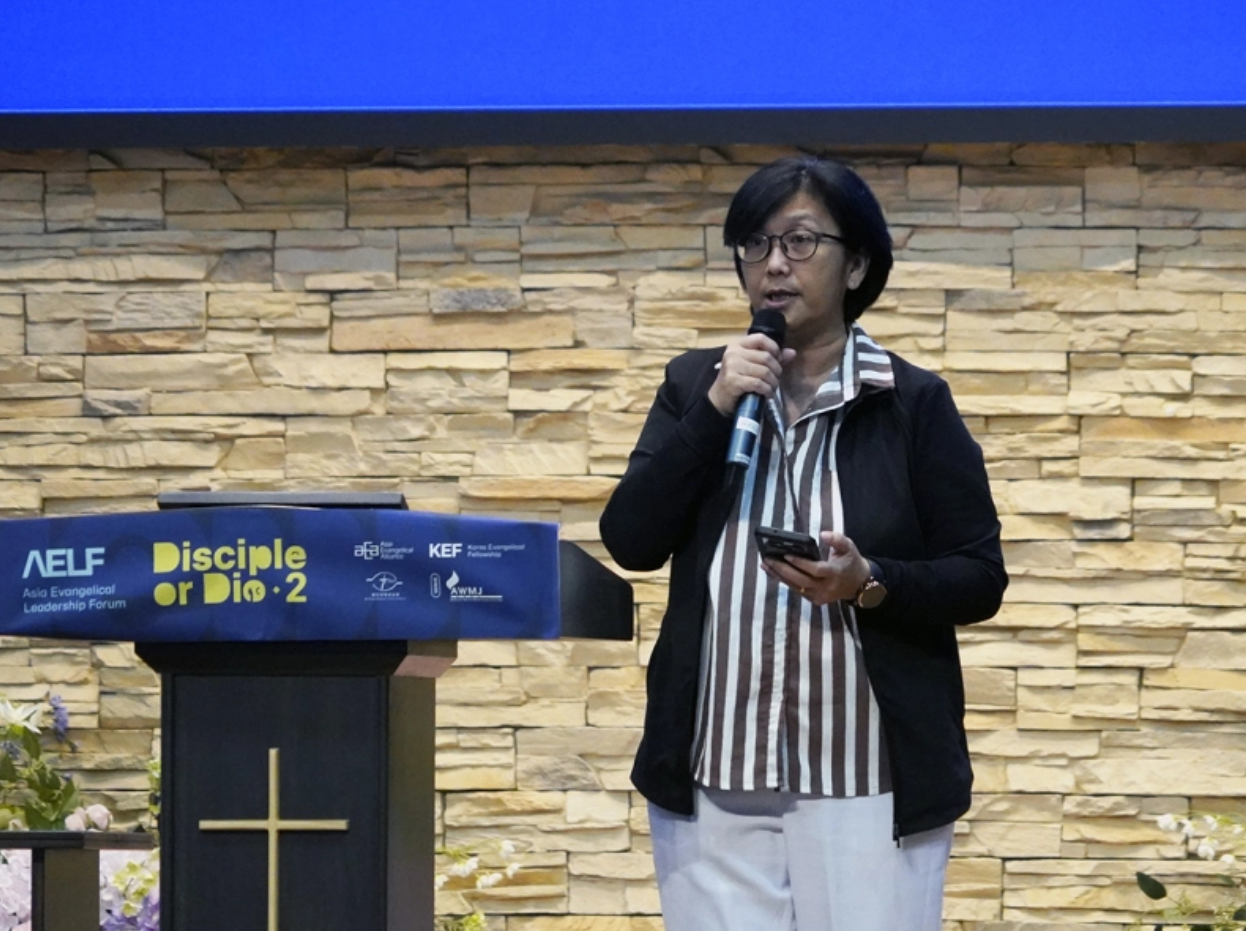“The Great Commission of Jesus has become a great omission and that is our elephant in the room”. With this premise, an intense day of dialogue began on 26 November in Valencia (Spain) with more than 400 participants serving in different church ministries.
“The pandemic has brought many realities to light”, said Lucas Leys, leader of E625, the organisation that has launched The elephant in the room in several Spanish-speaking countries to provoke debate on issues that are easily identifiable but little addressed. The tone of the experience, said the Argentinian theologian, should be “ministerial not magisterial” to make sure everything learned could be “grounded in our churches”.
The “success of discipleship”, Leys said, happens when it “begins in childhood and involves the family” because while “adults only learn through personal crises”, children and young people are at a stage where learning is natural.

Álex Sampedro, pastor of the Valentia Community Church, whose exhibition hall hosted the meeting, began by presenting not very encouraging statistics on how churches evaluate their own capacity to train the new generations in the Christian faith. Data was also presented by World Vision, whose representative Nieves Carabaña pointed to a report on the “open generation” with attitudes observed in 26 countries.
Inputs to provoke conversation
After the first diagnosis, the speakers’ contributions began, some of them on video from Latin America. This was the case of the Colombian Harold Segura, who emphasised the need to “walk as Jesus walked and do good as Jesus did”. In his 10 minutes, Puerto Rican Samuel Pagán defended the “centrality of the Scriptures in discipleship2, since it is in the Bible where it is possible to “discover and share the will of God, which begins in Genesis and takes us to all along to Revelation”.
From Peru, Robert Barriger defended the role of the elderly. Churches should have “grandparents, parents and children, growing up together”, he argued, because the Bible speaks of a three- and four-generation inheritance for those who follow God with integrity.
After each intervention, timed on a live clock clearly visible to the audience, the conversation opened up at the tables for the participants who packed the room (some having travelled from as far away as Barcelona, Madrid or Córdoba) to reflect on how to bring the abstract ideas into their own ecclesial reality.

This interest in interactivity was also reflected in the use of QR codes to collect live opinions, the results of which were displayed live on the screens.
Accompanying young people in the post-pandemic reality
Grace in a polarised world was the emphasis of US author Philip Yancey. “We need more churches competing to offer grace”, imitating the attitude of the Father in the famous parable of the prodigal son, who asked: “will this be the day when my son comes home?”
Educator Noemí Sampedro also spoke of the importance of strong bonds. She used a social media ‘challenge’ popular among the youngest to illustrate the need of “speaking the language of both children and their parents”. It is from that closeness that friendship flows, which forms community and ultimately leads to service. Children should be given good answers to their questions about God and also opportunities to be involved in church life from very early. All this will help towards the goal of “training a child in the way he should go, so that when he is old he will not depart from it” (Proverbs 22:6).
Mark Oestreicher, from the United States, spoke of the next stage, that of pre-teens (aged 11-14). “They are all change: physical, cognitive, emotional, relational”, in other words, they are “fresh cement”, ready to learn. But in church, they need “action, fun, dynamic teaching”, as well as finding a “sure environment”.
On the massive change experienced with the pandemic and the restrictions, Dan Kimball, a pastor with teenagers, spoke. On Tik Tok and other new networks there are more and more messages that ridicule the Bible, Christian values and tell stories of people who have left the church (the so-called “exvangelicals”). Coupled with a lack of discipleship, it is easy for many young people to be unable to respond to arguments that portray the Christian faith as “harmful”. What to do? One idea is to watch some of these social media clips with teenagers at church and respond honestly to the objections that arise.

Barcelona-based coach Félix Ortiz spoke about key transitions in life. In liminal moments of vulnerability, young people ask themselves “what should I leave, what should I keep, what should I incorporate into my life?”. It is at this point that many churches lose their young people. The reason, Ortiz said, is the absence of “references, a visible incarnation” showing how to live the next stage well. The “church must be a structure of credibility: with people who show what it means to be a disciple of Jesus in a complex and changing world”.
Pastor Daniel Requena, from Castelldefels, posed his challenge to pastors at the end of the morning. “What legacy will I leave behind when I no longer pastor my church? Where am I investing my time?” he asked. Those responsible for the whole congregation must “share the vision, live the vision and develop the vision constantly, for the long term”.
A church strategy that responds to real life
Several typical Valencian paellas served to the tables by volunteers helped to build momentum for the rest of the day. Also during the breaks, there were opportunities to visit information stands of entities such as GBU, Compassion, World Vision or E625.

In the afternoon, after a moment of alternative praise, Álex Sampedro returned to the question of “why we don’t make better disciples”. He alluded as a possible cause to “maintenance policies” in which “the church is made up rather than sent to the gym”. “As a church we do too many things, what doesn’t respond to the discipleship process should be dropped”. He also called for “measuring processes, not results. Paul sowed, Apollos watered, God gives the growth, so be faithful, God is in charge of the result”. After the pandemic, nobody know what the next wave will be. But it is important to be an “iterative church” that “is able to betray its ‘hows’ to be faithful to the ‘what’ and ‘why’ of the gospel”.
Towards the final part of the day, Lucas Leys presented materials available to churches, emphasising the need to make deep changes (“not just aesthetic or liturgical ones”) to better make disciples of Jesus. War, he argued, is made with a good strategy, and this planning will result in a good transition between all church ministries (children, tweens, teens and young adults). This will only be possible when pastors understand that their responsibility is not just caring about adults.
Some of the conclusions reached by the participants at the dialogue tables were shared from the stage in an open mic moment.

The long day of training was brought to a close in the evening by Jaume Llenas, who in his final 15 minutes, stated that “the New Testament is inundated with the word ‘disciple’: 269 times”. Jesus Christ dedicated more than half of his ministry to the 12 apostles he discipled. “This is a lifelong process: the primary agent is the Holy Spirit, who uses Christians who act intentionally and relationally, with the aim of building the person of Christ in the believer. And that disciple will make other disciples in what is a life-transmission”.

An international experience
The one in Spain was the last national Elephant in the room edition of a cycle that throughout 2022 has been organised in countries such as Argentina, Uruguay, Bolivia, Colombia, Mexico and the United States.
In the future, the initiative will continue to address other key questions of the churches in this conversational format. More information at El elefante en la sala (Spanish).
By JOEL FORSTER
Originally published on The Evangelical Focus
(c) Evangelical Focus, used with permission




